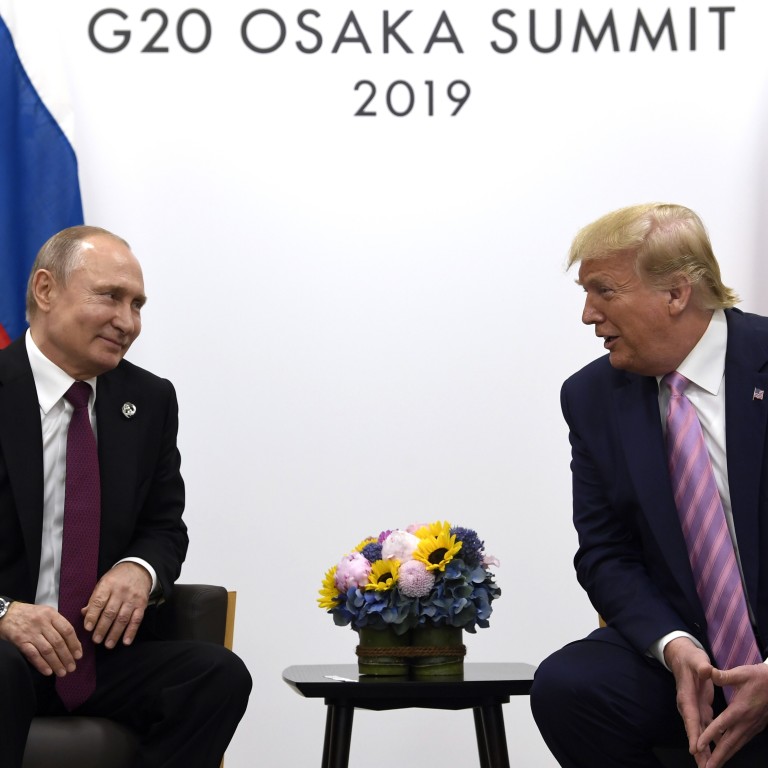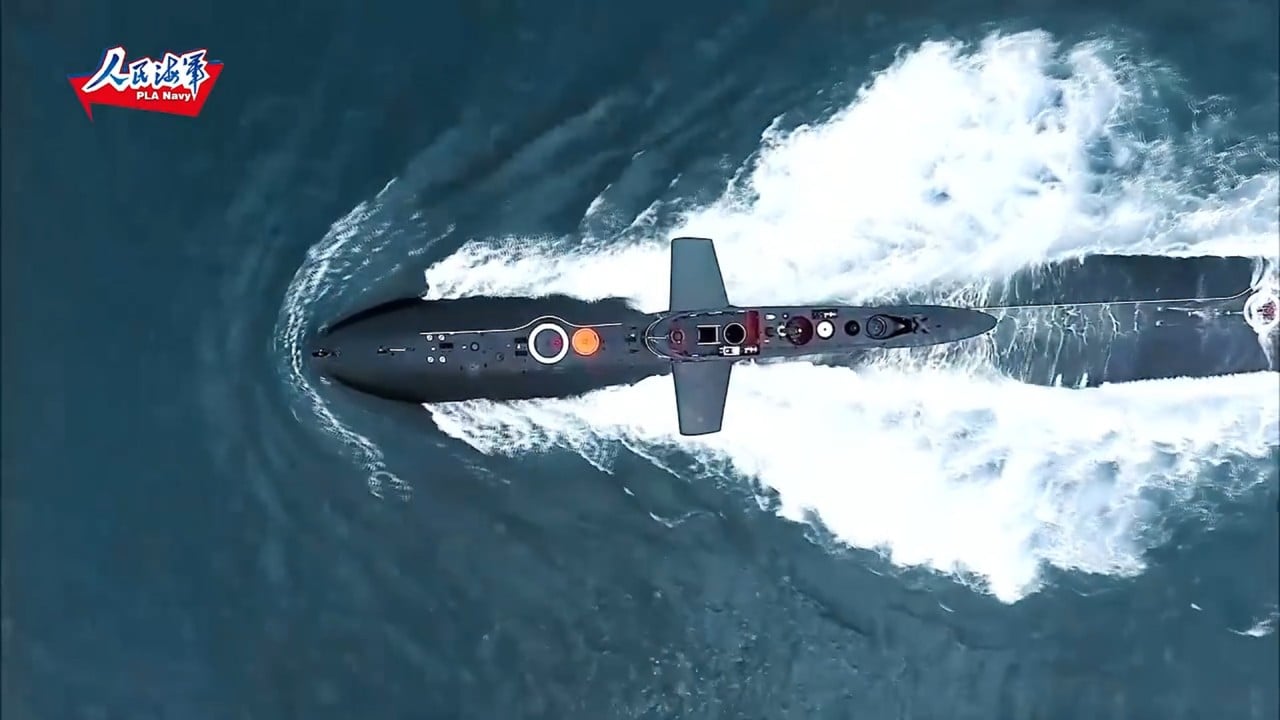
China invited to nuclear talks with Russia and US, says Donald Trump’s arms control envoy
- The announcement comes as a nuclear arms reduction treaty between Washington and Moscow – the New START Treaty – is set to expire in February
- Last month, a Chinese foreign ministry spokesperson said that Beijing has ‘no intention’ to join any trilateral arms control talks
US President Donald Trump’s top arms control envoy said on Monday that China has been invited to attend an upcoming round of nuclear negotiations between the US and Russia, despite Beijing’s continued insistence that it has no interest in attending such talks.
“Today agreed with the Russian Deputy Foreign Minister Ryabkov on time and place for nuclear arms negotiations in June,” Marshall Billingslea, Trump’s special presidential envoy for arms control, tweeted on Monday. “China also invited.”
“Will China show and negotiate in good faith?” he said.
The announcement comes as a decade-old nuclear arms reduction treaty between Washington and Moscow – the New START Treaty – is set to expire in February. Russia has said that any upcoming negotiations should deal with the bilateral treaty before it runs out.
The Trump administration has shown some openness to the idea of extending the agreement, which has led to both countries shrinking the size of their nuclear arsenals, but has also emphasised that China must now take a seat at the negotiating table too.
Last month, a Chinese foreign ministry spokesperson said that Beijing has “no intention” to join any trilateral arms control talks.
Russia and the US, the world’s original nuclear powers, are estimated to possess thousands of nuclear weapons each.
How Trump’s G7 olive branch could drive Russia closer to China
China, which is said to have the world’s third-largest nuclear arsenal, is thought to have about 300 nuclear weapons in its possession.
Billingslea has previously warned that Beijing may be engaged in a “secretive, unconstrained nuclear build-up,” and therefore should have to come to the negotiating table.
The US State Department would not comment on his announcement on Monday, but did confirm that the tweet had come from his account.
Bloomberg News reported on Monday that the talks alluded to in Billingslea’s statement are scheduled for June 22 in Vienna.

03:56
Chinese navy video shows nuclear sub launching JL-2 ballistic missiles during drill
It is unclear whether Washington’s strategy to link China to arms control talks with Russia will work. In May, a Russian foreign ministry spokeswoman called the idea of bringing China into the talks “contrived”.
Moscow’s TASS news agency reported on Monday that Sergey Ryabkov, the Russian deputy foreign minister, told a local TV show that the Trump administration is obsessed with China, trying to raise the issue whenever international topics were discussed.
Meanwhile, as the Trump administration continues to insist on China’s participation in the arms control talks, Beijing is also facing new-found pressure from some of Washington’s allies in Europe.
Europe nears tipping point on Russian hacking
Jens Stoltenberg, Nato’s secretary general, said on Monday: “The rise of China is fundamentally shifting the global balance of power, heating up the race for economic and technological supremacy, multiplying the threats to open societies and individual freedoms, and increasing the competition over our values and our way of life.”
China’s status as the world’s second-largest military spender, Stoltenberg said, would require a “more global approach” from the 30-country group, which was formed more than 70 years ago to counter Russia’s influence.

